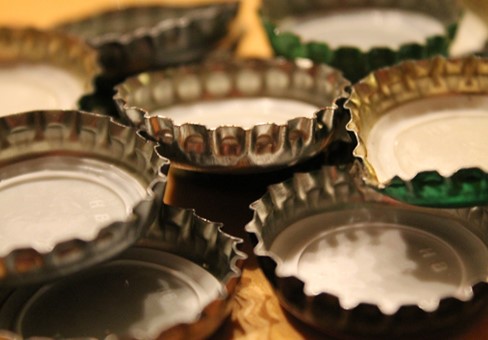Cautionary tale: is this the worst promotion ever?
Author: CIM COM
 Product promotions are everywhere. Money off, buy one get one free, coupons and contests are just some of the ways to structure a marketing promotion. They’re used because they work by influencing buying behaviour. Pepsi-Cola in the Philippines created a lottery promotion to increase product sales in this country which is the 12th biggest global carbonated soft-drink market. It aimed to lift its share from 17%. The campaign was publicised in newspapers, on TV and on the radio. The big idea was that “Today, you could be a millionaire!". In a country with a low average salary this was an attractive campaign. So how did such an uplifting idea turn into an unmitigated brand disaster?
Product promotions are everywhere. Money off, buy one get one free, coupons and contests are just some of the ways to structure a marketing promotion. They’re used because they work by influencing buying behaviour. Pepsi-Cola in the Philippines created a lottery promotion to increase product sales in this country which is the 12th biggest global carbonated soft-drink market. It aimed to lift its share from 17%. The campaign was publicised in newspapers, on TV and on the radio. The big idea was that “Today, you could be a millionaire!". In a country with a low average salary this was an attractive campaign. So how did such an uplifting idea turn into an unmitigated brand disaster?
Today, you could be a millionaire!
You could become a millionaire if you simply opened a bottle and the number printed inside your bottle cap turned out to be the winning number. Winning numbers were announced every day, so the more bottle tops you collected, the greater your chances of winning. It started well, consumers switched their drinking habits inspired by the chance to win. The advertising campaign was extended from 12 weeks to 17 weeks to make the most of ‘Number Fever’. Sales of Pepsi-Cola products increased by 40%.
Cash prizes were won by 51,000 people, while most people scooped the smallest prize of 100 Philippine pesos (around £1.50), there were 17 winners of 1 million Philippine pesos each, tax-free. This is worth around £15,000 today, but was worth more when this promotion was launched in 1992. Given the current minimum salary in the Philippines of £220 a year, and average of £8,000, that was a great prize. Even for those in the marketing profession, whose earnings are above average at £9,800 a year.
Then the company released the next winning number. Anyone with a bottle cap marked with the number 349 was a millionaire winner.
It’s a mistake, you can’t all be millionaires
Thousands of people went to collect their winnings. For many it was a once in a lifetime event which would lead them out of poverty, and certainly transform their lives. It was a time for celebration. But then PepsiCo Inc. refused to pay out. It told the would-be winners that a computer error had picked the wrong number by mistake.
Scale of the problem
Pepsi had budgeted for $2 million (£1.4 m) in prizes. However, the number 349 had been printed on up to 800,000 bottle caps. That number of claims could not be supported.
Claims from almost 500,000 cap-holders were received. Instead of paying out 1 million Philippine pesos to each winner the company decided to pay out around 1,000 Philippine pesos. Due to the sheer number of claimants, instead of its $2 million prize fund, almost $10 million (£7 m) has been paid out as a ‘goodwill gesture’.
Legal backlash from consumers
1,000 criminal and civil suits were filed. This includes a class action on behalf of 20,000 people, Coalition 349.
Public anger focused in the brand
This failed promotion brought crowds out in protest:
- 37 delivery trucks were stoned, torched or overturned.
- bombs were thrown into Pepsi’s buildings.
- tragically, a schoolteacher and a 5-year-old girl were killed and six other people were wounded when a grenade aimed at Pepsi property exploded.
Negative brand legacy
There have been long, drawn-out, legal battles. After a 13-year court battle, the Court of Appeal ordered Pepsi-Cola Products Philippines Inc. to pay 6.2 million Philippine pesos (£93,000) to Pepe Pagdanganan and Pepito Lumahan over its ‘349 promotion’.
Many legal cases have been dismissed for a variety of reasons. To win, it seems depended not only upon getting the winning numbers, but also upon the presence of a security code. This ‘hidden’ rule enabled Pepsi to limit its exposure.
In 2006, the Philippine Supreme Court ruled that Pepsi-Cola was not liable for damages in the promotion as there was “no proof of negligence”.
To be ‘349ed’ has become a commonly used term which means to be duped. That’s not an attribute which you’d normally associate with a reputable brand.